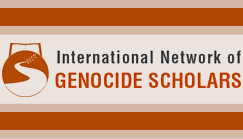Event Title
Recovering Refugee Voices: Armenian Refugees of the War and Genocide in Transcaucasia
Submission Type
Paper
Abstract
This presentation (based on the article “Recovering the Voices of Armenian Refugees in Transcaucasia: Accounts of Suffering and Survival” accepted for publication in the Armenian Review) focuses on the humanitarian emergency and refugee crisis at the Caucasus front during the First World War, caused by population movements as a result of war and the Armenian Genocide. Reflecting on the experiences of the Armenian refugees in various parts of Transcaucasia and in eastern provinces of the Ottoman Empire occupied by Russian troops, this project addresses a number of core questions related to the refugees’ understating of and reaction to those appalling developments and to the humanitarian relief work. It aims to uncover the perspectives of refugees—recipients of the assistance—and to show the role refugees themselves played in that struggle for survival. Finally, this paper incorporates into the narrative of assistance and survival the experiences of those Armenian activists, intellectuals and relief coordinators, among others, whose efforts made the organization of self-help during the war and genocide possible.

Recovering Refugee Voices: Armenian Refugees of the War and Genocide in Transcaucasia
This presentation (based on the article “Recovering the Voices of Armenian Refugees in Transcaucasia: Accounts of Suffering and Survival” accepted for publication in the Armenian Review) focuses on the humanitarian emergency and refugee crisis at the Caucasus front during the First World War, caused by population movements as a result of war and the Armenian Genocide. Reflecting on the experiences of the Armenian refugees in various parts of Transcaucasia and in eastern provinces of the Ottoman Empire occupied by Russian troops, this project addresses a number of core questions related to the refugees’ understating of and reaction to those appalling developments and to the humanitarian relief work. It aims to uncover the perspectives of refugees—recipients of the assistance—and to show the role refugees themselves played in that struggle for survival. Finally, this paper incorporates into the narrative of assistance and survival the experiences of those Armenian activists, intellectuals and relief coordinators, among others, whose efforts made the organization of self-help during the war and genocide possible.





Comments
View the agenda item.
View Asya Darbinyan's bio.